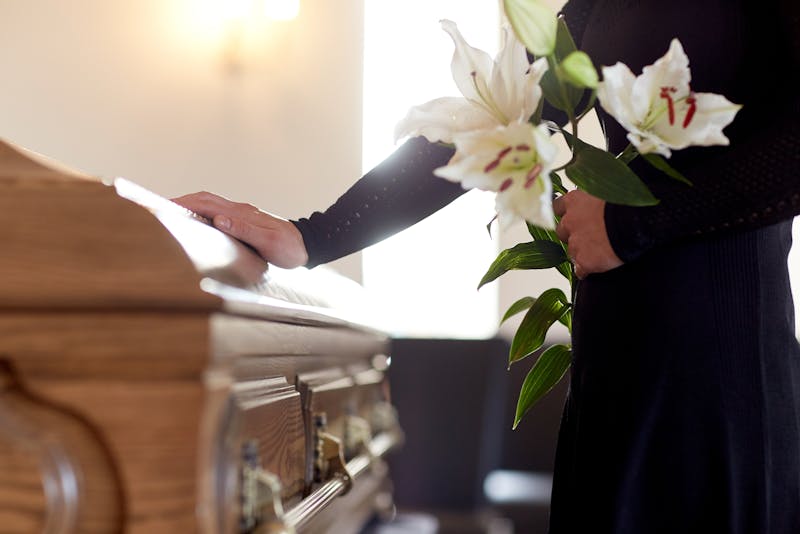
Losing a loved one is never easy, but it’s especially difficult if your loved one was killed in an accident caused by someone else’s negligence. In Florida, this is called a wrongful death. If your loved one suffered a wrongful death, it’s important to speak to a Tampa personal injury attorney to learn about your family’s right to compensation.
The law allows the victim’s family to take legal action against the at-fault party in order to recover compensation for their losses. But each state has its own law regarding who can file a wrongful death lawsuit after the loss of a loved one. Who can sue for wrongful death in Florida? Here’s what you need to know:
What Are Common Types of Wrongful Death Cases?
Florida law defines a wrongful death as a death that occurs as a result of a wrongful act, negligence, default, or breach of contract or warranty.

A wrongful death can arise in a number of different ways, including:
- Traffic accidents
- Drunk driving accidents
- Medical malpractice
- Pedestrian accidents
- Bicycle accidents
- Boating accidents
- Defective products
- Slip and falls
If your loved one was killed in an unexpected accident, you may want to speak to a personal injury attorney to determine if you have a case.
Who Can File A Wrongful Death Lawsuit in Florida?
In Florida, the only person that is allowed to file a wrongful death lawsuit is the decedent’s personal representative. The personal representative is someone who was appointed by the decedent in their will prior to their death. In many cases, the personal representative is a family member or trusted friend. But if the decedent did not prepare a will, the court may appoint a personal representative for the decedent’s estate.

Whoever is recognized as the decedent’s personal representative may seek justice by filing a wrongful death lawsuit against the at-fault party.
Who is Entitled to Compensation for A Wrongful Death
The personal representative of the decedent’s estate is the only individual who is legally allowed to file a wrongful death lawsuit in Florida. But this does not mean that the personal representative is the only one who is allowed to recover compensation from the at-fault party.
By law, any compensation that is recovered in a wrongful death case is awarded to the decedent’s survivors, which include:
- The decedent’s spouse
- The decedent’s children
- The decedent’s parents
- Blood relatives or adoptive brothers or sisters that were wholly or partly dependent on the decedent at the time of their death

These surviving family members may be awarded compensation for the losses they have suffered as a result of the decedent’s wrongful death.
What Types of Compensation Are Awarded in Wrongful Death Cases?
Florida law outlines exactly what types of compensation each surviving family member may recover in a wrongful death case.
Each surviving family member is entitled to compensation for the loss of support and services suffered as a result of the victim’s death. For example, the victim’s family may be awarded compensation for the loss of financial support they have suffered due to the decedent’s death. If the decedent performed household services for their family, such as taking care of the children, the family may be compensated for the loss of these services as well.
A number of factors must be taken into consideration when calculating the value of the loss of support and services, including the replacement value of the services, the decedent’s income, the decedent’s earning potential, and the decedent’s life expectancy.
The decedent’s spouse is also entitled to compensation for the loss of companionship and protection in addition to mental pain and suffering.

The decedent’s children under the age of 25 may recover compensation for loss of parental companionship, loss of guidance, and mental pain and suffering. If there is no surviving spouse, the decedent’s children over the age of 25 may also recover for these losses.
The decedent’s parents are entitled to compensation, too. If the decedent was under the age of 25, their parents may recover compensation for their mental pain and suffering. If the decedent was over the age of 25 at the time of their death, their parents may only recover for mental pain and suffering if the decedent did not have a surviving spouse or children.
Any surviving family member who paid for the decedent’s medical care and/or funeral can also recover compensation for these expenses.
The amount of compensation that is awarded for a wrongful death varies on a case-by-case basis. Each case is unique, so it’s best to discuss your case with an attorney to find out how much compensation your family is entitled to for your devastating loss.
What is the Statute of Limitations for Wrongful Death Lawsuits in Florida?
Each state has its own laws that restrict the amount of time that surviving family members have to take legal action after a wrongful death. In Florida, the statute of limitations for wrongful death lawsuits is two years from the date of the victim’s death. If you file a lawsuit after the statute of limitations has expired, the court will most likely dismiss the case, which means you won’t be able to recover compensation for your losses. This is why it’s so important to contact an attorney as soon as possible after losing a loved one.
Discuss Your Right to Take Legal Action with Our Wrongful Death Attorneys Today
If your loved one suffered a wrongful death, it’s in your best interest to seek legal representation right away. Turn to the trusted wrongful death attorneys at Carlson Meissner Hart & Hayslett as soon as possible to discuss your case.
Our attorneys have over 125 years of combined experience representing grieving families throughout the greater Tampa Bay area. We have the legal resources and skills that your family needs to secure the compensation you deserve. Contact our law office now to schedule a free consultation with our team.

